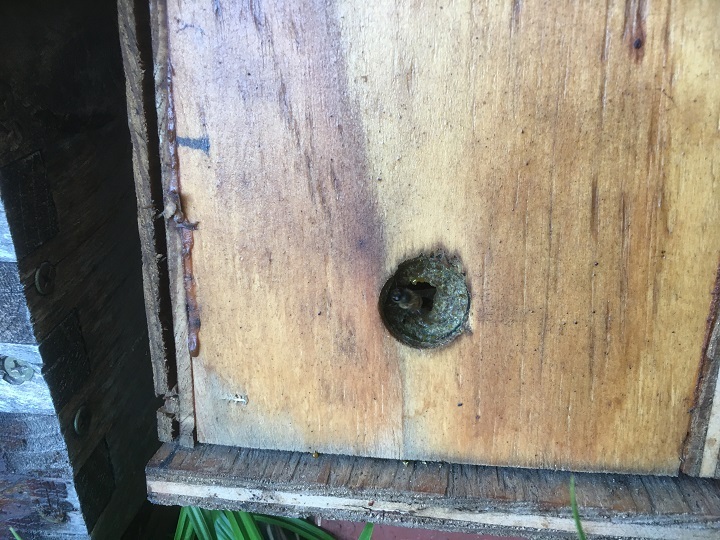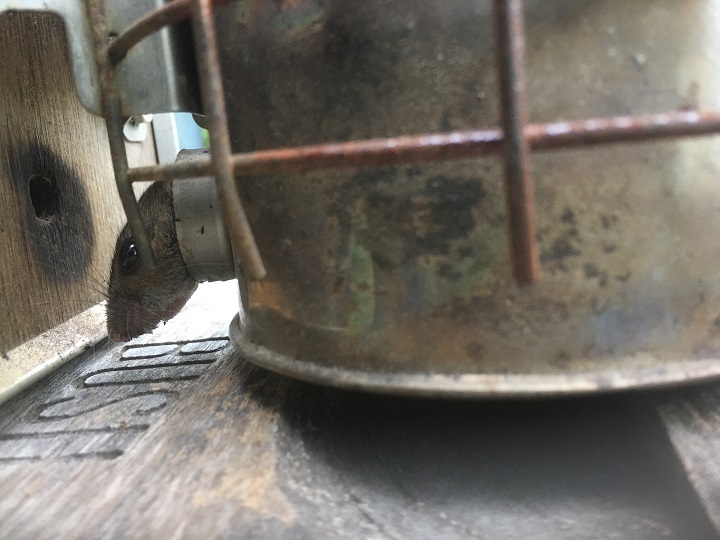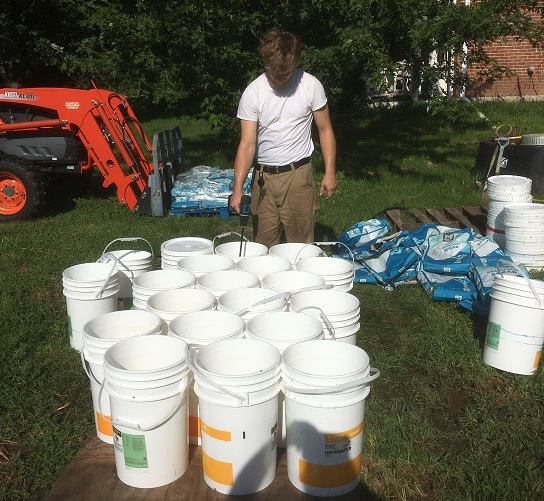"We occasionally read in books on bees, or works on natural history, that the queen in her lifetime lays about 60,000 eggs. Such a statement is simply ridiculous; 600,000 to 1,000,000 would be somewhat nearer the truth; for most queens, in spacious hives and in a favourable season, lay 60,000 eggs in a month. The queen, as a rule, commences laying eggs in February, and continues until September, though not always at the same rate. An especially fertile queen in the four years, which on an average she lives, may thus lay over 1,000,000 eggs. The Author once had a queen fully five years old, which was still remarkably vigorous, and might have lived for another year or two if she had not been destroyed. It is, therefore, quite credible that the age of the queen occasionally extends to seven years, as we are assured by some bee-keepers who have made this observation; yet when we are told that in exceptional cases queens have continued alive for eleven to twelve years, the assertion probably rests on a delusion, or such a case is as rare as that of a man attaining the age of one hundred years or more. There is certainly a great difference among queens as regards fertility; the best mothers are those that lay a great number of eggs and deposit them in the cells regularly, neither laying two eggs in one cell nor missing a cell. With such a queen in the hive the brood is nicely arranged, and much of it hatches simultaneously, thus making it easy for the queen to repeat the operation of depositing eggs when the cells have been emptied. When such is the case the stock will be thriving, its well-being depending chiefly on the queen, who, as it were, is the soul of the hive."--Jan Dzierzon, Rational Bee-Keeping, 1882 English edition, Pg 18
I consider propolizing a good trait for bees (maybe not for the beekeeper). Here is a mating nuc I found this year. The drilled hole is about 5/8". The reduced hole is about 5/16".
It wasn't working right and then it would and then it wouldn't. This is what I found. It couldn't get out, so I left it and used another smoker. It was finally out after two days.
We needed to feed because of a dearth and we still needed to finish building up the 8 frame nucs for winter. We bought 50 six gallon buckets and bought 3,450 pounds of sugar in 25 lb bags. We worked out the maximum strength we could do with hot water from my tap (140 F) and not have it crystallize out. We put one 25 pound bag in each bucket with a heaping tablespoon of ascorbic acid, then 18 pints of water and stir it with a five gallon paint stirrer. After 10 to 30 minutes we stir it again.



















